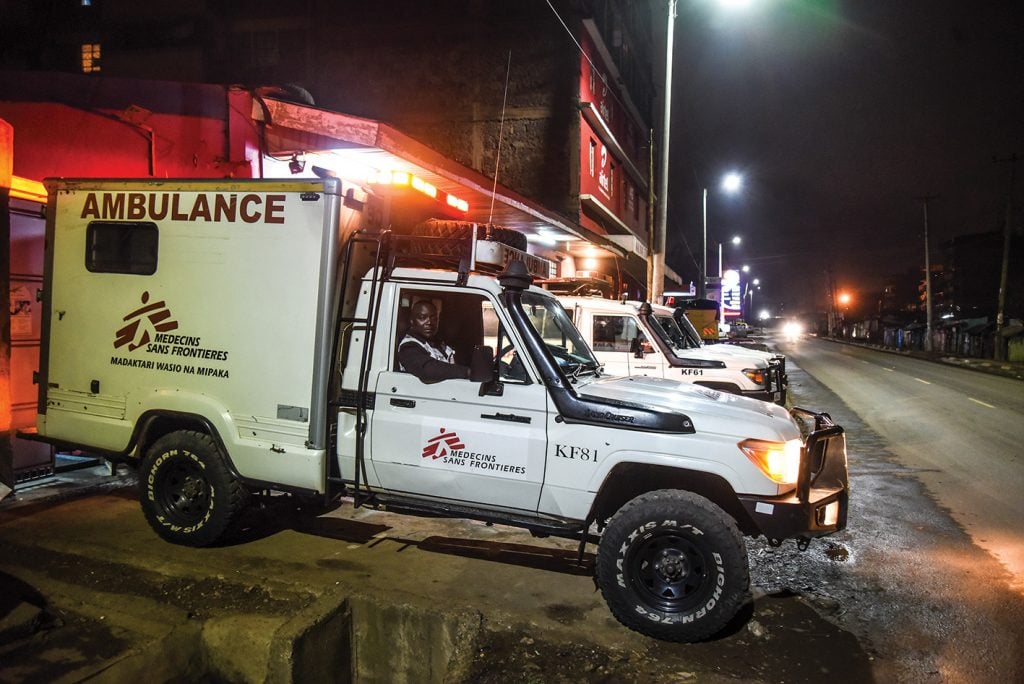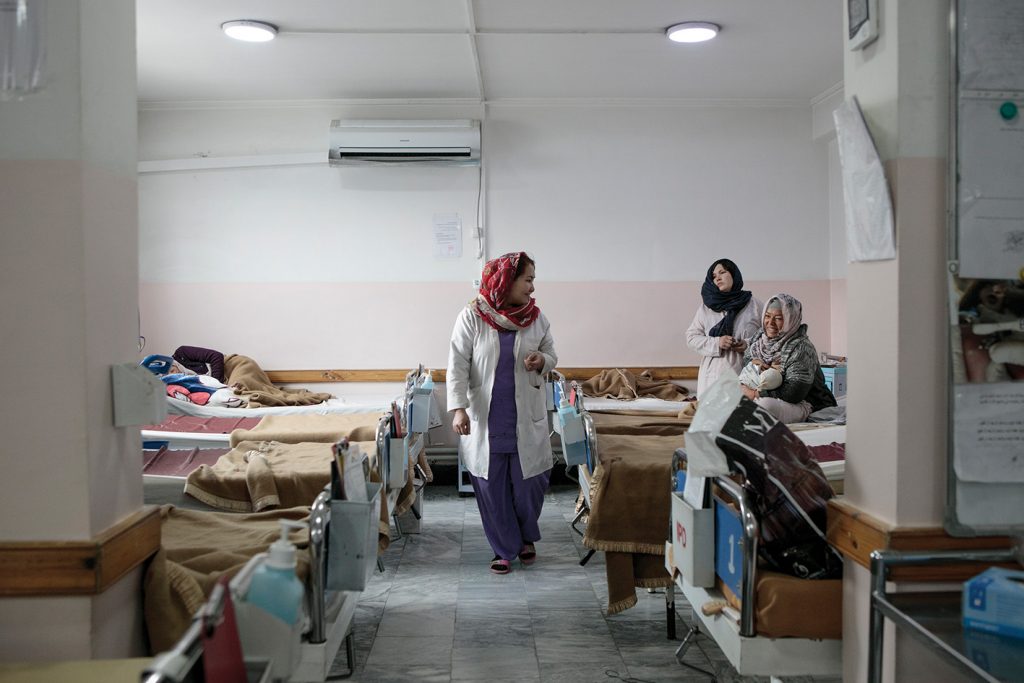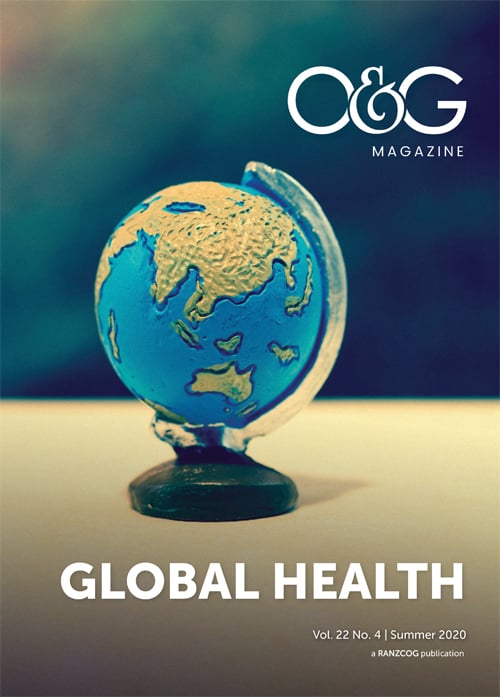As COVID-19 continues to spread and take up oxygen, figuratively and literally, sexual and reproductive health (SRH) services are suffering. There are many reasons for this: women avoiding care due to fear of infection or the inability to have a companion, lockdowns, reduced capacity to pay for services as well as to provide them. And there are now worrying predictions that this will lead to increased death and suffering for women globally,1 2 concerns backed up by our own early data and experiences.
International medical-humanitarian organisation Médecins Sans Frontières (Doctors Without Borders/MSF) has been part of the COVID-19 response in more than 70 countries. We’ve developed new activities to prevent spread and provide patient care, and adapted to keep our pre-existing projects open – including our SRH services, so that we could continue caring for marginalised women and girls in countries such as Afghanistan, Kenya, Malawi, Pakistan and Yemen.
Here, we share some of MSF’s recent experience in four essential services: maternity care; safe abortion care and family planning; sexual and intimate partner violence; and cervical cancer prevention. We also highlight the devastating intersection of COVID-19 with conflict in the most fragile settings.
Global reductions in maternity care
In a recent qualitative study, maternal and newborn health professionals in 60 low- and middle-income countries (LMICs) described disruptions across the spectrum of maternity care.3 MSF has not been immune: for antenatal care alone we have already seen visits decline by 22% from April to June 2020 compared to the same period in 2019.
Despite our commitment to keeping services running, it has been a continuous struggle. When a staff member in our hospital in Peshawar, Pakistan, tested positive for COVID-19 in April, almost half our workforce had to quarantine. We had to close our doors on new admissions, transfer our patients to a public hospital close by, and inform our networks that we would be out of action. It took six weeks to reopen, with separate pathways for positive and negative patients and increased bed spacing.
Other organisations are also struggling. For UNFPA, a funding crisis forced it to suspend reproductive healthcare in May in 140 health centres in Yemen, leaving just 40 in operation and forcing risky delays in care – with, it reported, ‘tragic consequences.’4
By June, Roopan, working in one of our maternity hospitals in northern Yemen at the time, was witnessing similarly fatal effects: women arriving too severely ill to save, due to fear of COVID-19 and health centre closures.
Despite the unpredictability of the disruptions, we have remained determined to keep our maternity doors open, decentralise as much as possible, and support others to do so too. We have rearranged services to make them safer, invested in personal protective equipment and additional training, and kept communities abreast of how to safely find the care they need.
Family planning and safe abortion care: already neglected, particularly hard hit
According to Guttmacher Institute modelling in 132 LMICs, a 10% decline in use of SRH services resulting from COVID-19-related disruptions could result in ‘an additional 15 million unintended pregnancies, 3.3 million unsafe abortions and 1000 maternal deaths from unsafe abortions in the 12 months following the start of the pandemic.’5
Family planning and safe abortion care have long faced barriers to prioritisation. We are deeply concerned that our own strengthened efforts in these two areas will be dragged backwards. Comparing the first two quarters of 2020 in MSF, we’ve seen declines for both family planning consultations and terminations of pregnancy: 18% and 17% respectively.
In Rustenburg, South Africa, however, our collaboration with the Department of Health proved its strength when we successfully advocated to reinstate abortion services as ‘essential’ after they were categorised as ‘elective’ and cut from hospitals and community health centres.
Yet not all women could access care in time. Our colleague, Kgaladi Mphahlele, recalls a 35-year-old woman who requested a termination at MSF’s clinic in June, 27 weeks pregnant. It was her third attempt. ‘She was initially booked for… the first day of the national COVID-19 lockdown and she couldn’t get to the clinic for her appointment. She came back a week later but was turned away by the security guard working for the Department of Health, who told her there were no terminations taking place… She pleaded for me to help as she was not currently working and she had children at home to support. But it was too late… We provided her with counselling and connected her with a social worker.’
Victims of violence more hidden than ever
There is no doubt that for victims of violence, the barriers to accessing care have only grown despite increases in demand. The Australian Institute of Criminology surveyed 15,000 women aged 18 and over earlier this year, and found two-thirds of those experiencing physical or sexual violence did so for the first time, or suffered an escalation.6 There is limited data in LMICs, but a recent survey on the effect of stay-at-home orders in Bangladesh on 2424 women found that emotional or moderate physical violence had escalated for more than half of those subjected to it before the lockdown.7
For MSF, we haven’t seen increased presentations for care, but this is almost certainly because of reduced mobility. Where we have hotlines, and where victims can access phones, for example, in Nairobi’s Eastlands area, we hear their distress and have endeavoured to change our models of delivery to provide as many options as possible. In Nairobi, granted permission to continue our 24/7 ambulance service despite the night curfew, we decided to start delivering the medications normally dispensed at our clinic. And across similar projects we’ve created new hotlines or expanded existing ones, to provide tele-care for psychological first aid as well as ongoing counselling.

James, an ambulance driver in MSF’s sexual violence care and emergency medical service project in Nairobi, Kenya, prepares to respond to a night-time call. May 2020. © Paul Odongo
An uncertain future for preventing cervical cancer
In March, we were faced with some tough choices, and weighing up the long-term versus short-term risk to life and shortages of PPE and staff, we decided to remove cervical cancer screening from our essential list. Providers we collaborated with were making similar decisions. In Zimbabwe, the ‘test and treat’ screening we supported was suspended and staff re-allocated by the Ministry of Health. In Manila’s slums, where we partner with local non-governmental organisation Likhaan, we also had to cut back due to strict community quarantine that persisted for months.
What we did maintain was lifesaving surgery for early-stage cancer in Malawi. Only operating since December 2019, the surgical arm of our comprehensive program already had a backlog of cases that it was unconscionable to put off. We have since been able to resume screening, but there will be some future cases of cervical cancer from these stoppages that could have been prevented.
As if a pandemic wasn’t enough! The double burden of conflict and COVID-19
In countries affected by ongoing conflict, such as Yemen and Afghanistan, the pandemic has only amplified these already fragile contexts, and the fragility of life.
This was illustrated chillingly in MSF’s maternity hospital in western Kabul, which opened in 2014 to care for the marginalised Hazara community in Dasht-e-Barchi district. Due to COVID-19, MSF had already had to cut back from an average of more than 1300 deliveries per month, limiting admissions and bed occupancy to improve spacing and other IPC measures.
Then on May 12 2020, without warning, armed assailants attacked, killing 24 people including staff, mothers and children. All maternal and newborn care ceased, creating an immediate vacuum of care. Unable to ensure the future security of staff or patients if it reopened, MSF made the difficult announcement that it would permanently withdraw from the hospital on June 18 2020.
The Department of Health has since announced it will take over the facility but, in a context of already having to divert limited resources due to pandemic pressures, there is grave uncertainty as to the future welfare of pregnant women in Dasht-e-Barchi.

The post-natal ward of MSF’s Dasht-e-Barchi maternity hospital in Kabul, Afghanistan, where an average of 1300 deliveries were assisted every month before a brutal armed attack in June 2020. December 2019. © Sandra Calligaro
How can we remain effective during COVID-19?
MSF will continue to provide and advocate for SRH services as essential. We will continue to send O&Gs and midwives to our projects where those specialties are not available locally, to provide, and to train others to provide, lifesaving care to women. We will pursue the burgeoning opportunities of self-managed care, increasing our investment to help women overcome access constraints.
To the broader healthcare community, we call on stakeholders from service providers to policy makers to get involved in trying to ensure that we don’t see major reversals in the worldwide progress in women’s health over the last 20 years. And we call on you, dear reader, to advocate for SRH services, for access to contraception and safe abortion and protection from violence; to volunteer to provide services and to train others whether overseas, locally or in our region. We may not be able to save every life, but together we can work to mitigate the pandemic’s indirect effects so that no woman or girl is left behind.
References
- Riley T, Sully E, Ahmed Z, Biddlecom A. Estimates of the potential impact of the COVID-19 pandemic on sexual and reproductive health in low- and middle-income countries. Int Perspect Sex Reprod Health. 2020;46:73-6.
- Roberton T, Carter ED, Chou VB, et al. Early estimates of the indirect effects of the COVID-19 pandemic on maternal and child mortality in low-income and middle-income countries: a modelling study. Lancet Glob Health. 2020;8(7):e901-8.
- Graham WJ, Afolabi B, Benova L, et al. Protecting hard-won gains for mothers and newborns in low-income and middle-income countries in the face of COVID-19: call for a service safety net. BMJ Glob Health. 2020;5(6):e002754.
- United Nations Population Fund. A matter of life and death for Yemen’s women and girls as funding dries up. May 2020. Available from: www.unfpa.org/news/matter-life-and-death-yemens-women-and-girls-funding-dries
- Riley T, Sully E, Ahmed Z, Biddlecom A. Estimates of the potential impact of the COVID-19 pandemic on sexual and reproductive health in low- and middle-income countries. Int Perspect Sex Reprod Health. 2020;46:73-6.
- Boxall H, Morgan A, Brown R. The prevalence of domestic violence among women during the COVID-19 pandemic. Canberra: Australian Institute of Criminology; 2020. Statistical Bulletin no. 28.
- Hamadani JD, Hasan MI, Baldi AJ, et al. Immediate impact of stay-at-home orders to control COVID-19 transmission on socioeconomic conditions, food insecurity, mental health, and intimate partner violence in Bangladeshi women and their families: an interrupted time series. Lancet Glob Health. 2020;8(11):e1380-9.







Leave a Reply